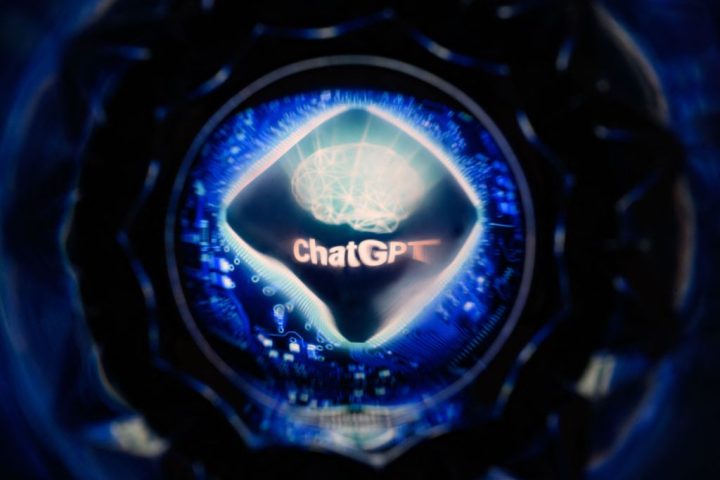The rise of artificial intelligence may be rescuing the tech oligarchy, but its current trajectory could hasten our steps towards what virtual reality guru Rony Abovitz calls ‘computational autocracy’. The new possibilities posed by AI represent a force multiplier for the large tech firms. Musk, Apple, Meta, Google and Microsoft already seem poised to dominate the field.
Yet the emerging politics of AI are likely to be confusing. Even its architects like Sam Altman, chairman and CEO of OpenAI, the company which developed ChatGPT, recently warned that about an ‘existential risk’ to humanity. This could become even more serious when AI morphs into what is referred to ‘artificial general intelligence’, where ever more autonomous ‘smarter than human’ machines perform more tasks without human input.
The current trajectory of AI seems to be as a force multiplier for bad things
Of course, most tech oligarchs themselves – Reid Hoffman, John Doerr and much of the venture ‘community’ – see AI as what may ‘save humanity’. This is the line taken by the Financial Times, suggesting the dawn of a new boom that will benefit humanity, albeit with the loss of a mere 300 million jobs.
AI certainly could prove very useful in many critical areas such as medical technology, transportation, energy, space travel and business analytics. Yet it’s economic impact may not be much better than the social media revolution: as Northwestern economist Robert Gordon notes, it has not notably boosted productivity, unlike the strides made by such things as the development of steam engines, electricity, jet propulsion and nuclear power. Recent measurements of further productivity decline do not suggest that the algorithms are making businesses more efficient.
Much of the problem is that the tech oligarchy sees its big money by developing ephemera. The leading AI chip designer and first trillion dollar semiconductor firm, Nvidia, has, for example, grown largely on endeavours such as video games and crypto-currency. Rather than a focus on solving real world problems, the tech giants thrive on surveillance, titillation, and social ‘engagement’. AI could push them – and therefore us – further along that road.
AI may become the crack cocaine of the digital age, offering the highs of facility and speed to the masses without giving most of us anything good. Meanwhile, the dealers – the tech giants and autocratic regimes – will become ever more rich and powerful.
Rather than a boon, the current trajectory of AI seems to be that it will most likely function as a force multiplier for bad things. Its usefulness for enhancing social control makes it a favourite priority of Chinese super-snooper regime while tech firms happily sell their designs to enhance that country’s ever-expanding surveillance state. In the West, AI could well allow tech firms to gather and use private data in ever more pervasive ways.
There are already lawsuits aimed at stopping AI companies from conducting pervasive personal data ‘scraping’, allegedly also including also on the information of children, for their programs.
This is concerning since we already know social media’s impact on young people has been less than positive. New York University professor Jonathan Haidt, and Jean Twenge, a professor of psychology at San Diego State University, have demonstrated the extraordinary psychological problems associated with social media use, particularly among the young.
AI’s role also will likely create a new political conundrum, particularly for progressives, and their closest allies. With the growth of artificial intelligence, the prospect of replacing humans by machines seems increasingly imminent, including the educated white collar professionals who now constitute much of the Democratic base.
We could see conflicts like the one now unfolding in Hollywood about diminished earning from streaming platforms – a key driver of the current entertainment industry strike. (Disclaimer: I have been a member of the screen actors’ guild AFTRA-SAG).
Actors, writers, independent producers and craft workers also fear the development of AI-powered computer graphics that can artificially duplicate the voices, mannerism, and appearances of actors. And as some researchers fear, AI will soon learn to detach itself from dependence on human-created things, generating its own machine-based content.
Google is working feverishly on technologies that seek to duplicate the functions of journalists. Of course, AI-directed reporting will follow the company’s pseudo left hive mind, but given the left-liberal bias of the mainstream media, maybe replacing humans with algorithms won’t be a total loss.
In the short run, fields that require a human touch may fare better. In an AI universe, notes Abovitz, it’s better to be a plumber than a paralegal or a software coder. Areas where human interaction still remains key, like nursing care and sex work, may face competition from robots but this will likely take a generation to take hold. No surprise then that over 80 per cent of millennials worry that their jobs are now threatened by AI.
Humanity can only restore its future if we resist handing over control on AI to the oligarchs, and instead seek ways to make technology work for our benefit, not just theirs.






Comments